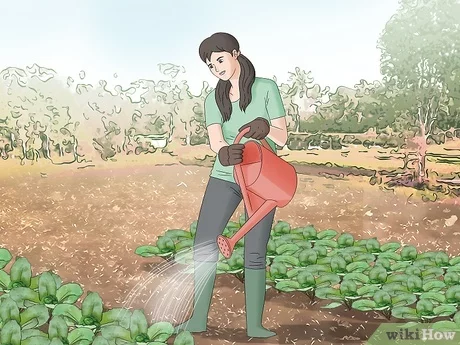The integration of science and local knowledge is crucial for the sustainable development of the agricultural sector in Nigeria. Besides, when most farmers refuse to leave their old ways, the best approach is to leverage, not completely discard them. Rather than disregarding local knowledge, innovative systems should aim to collaborate with it, ensuring that small-scale farmers have access to knowledge and the ability to shape its development.
This approach recognises the richness, relevance, and reliability of local knowledge, especially when combined with the expertise of local food processors who play a pivotal role in enhancing the value of local products. By supporting farmers and rural communities with technical knowledge and information, African nations, not just Nigeria, can build the social and human capital necessary for sustainable intensification in the face of numerous challenges.
Local knowledge is a valuable resource that is deeply rooted in the cultural, social, and environmental contexts of African communities. It encompasses generations of experience and expertise that have been honed over time, resulting in practices that are often well-suited to the local agro-environment. By incorporating local knowledge into agricultural systems, we can tap into this rich resource and maximize its benefits.
Collaboration between scientists and local farmers can foster an exchange of knowledge, where scientific advancements are merged with local wisdom. This synergistic approach allows for the co-creation of innovative solutions that address the unique challenges faced by small-scale farmers in Africa. For instance, farmers’ observations regarding weather patterns, pest infestations and soil conditions can be combined with scientific data to develop effective agronomic practices that improve crop yields and resilience.
To ensure the success of agricultural development efforts, it is essential to empower small-scale farmers and enable their active participation in shaping the knowledge and practices that affect their livelihoods. By facilitating access to information, technical training, and market insights, farmers can make informed decisions, improve their productivity, and seize opportunities for growth.
Innovative co-learning and extension platforms provide an effective means of disseminating knowledge and engaging farmers. Mobile phone technology, which has become pervasive even among the poorest communities, can play a significant role in bridging information gaps. Through mobile platforms, farmers can receive real-time updates on agronomic practices, climate conditions, and pest alerts.
This digital approach offers distinct advantages over the traditional, underfunded, and ineffective in-person extension system, which often struggles to reach remote areas with limited resources.
We face numerous challenges in their quest for agricultural development. These challenges include climate change, land degradation, limited access to markets, and inadequate infrastructure. To overcome these obstacles, it is imperative to foster sustainable intensification—an approach that seeks to increase agricultural productivity while minimizing negative environmental impacts.
By combining scientific knowledge with local expertise, farmers can implement practices that enhance resource efficiency, reduce greenhouse gas emissions, and promote biodiversity conservation. For instance, through agroforestry techniques, farmers can integrate trees into their farming systems, providing shade, improving soil fertility, and diversifying income streams.
Moreover, sustainable intensification requires a holistic approach that considers the social and economic dimensions of agriculture. By strengthening rural communities, providing them with the necessary social and human capital, and equipping them with market knowledge and entrepreneurial skills, African countries can create vibrant rural economies that contribute to poverty reduction and food security.
I, therefore, emphasize the criticality of integrating science and local knowledge for achieving sustainable development in the field of agriculture. It is imperative that we acknowledge and value the wealth of knowledge held by local communities and collaborate closely with small-scale farmers. By combining their expertise with scientific advancements, we can leverage existing wisdom to drive progress.

 Join Daily Trust WhatsApp Community For Quick Access To News and Happenings Around You.
Join Daily Trust WhatsApp Community For Quick Access To News and Happenings Around You.